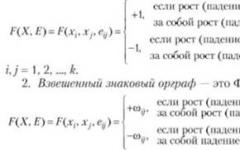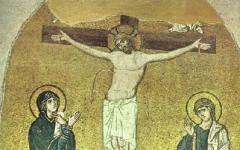В английских университетах того времени не предусматривались курсы обучения английскому праву, и Блэкстон решил заполнить эту брешь в образовании. С 1753 он читал курсы лекций, которые давали студентам необходимую подготовку.
БЛЭКСТОН, УИЛЬЯМ (Blackstone, William) (1723–1780), английский юрист и писатель, родился в купеческой семье в Чипсайде (Лондон) 10 июля 1723. Получил образование в Чартерхаус-Скул в Лондоне и Пембрук-колледже Оксфордского университета. В 1741 вступил в «Миддл-темпл», отметив это событие стихами Прощание юриста со своей музой (напечатаны в «Альманахе Додсли»). В 1744 Блэкстон был избран членом совета оксфордского Олл-Соулз-колледжа. Через два года он стал практикующим юристом, но вскоре обнаружил, что не обладает качествами, необходимыми для преуспевающего юриста того времени; в 1753 он вышел в отставку и восстановил свое членство в научном сообществе Оксфорда. В английских университетах того времени не предусматривались курсы обучения английскому праву, и Блэкстон решил заполнить эту брешь в образовании. С 1753 он читал курсы лекций, которые давали студентам необходимую подготовку. В 1758 Блэкстон был назначен профессором юриспруденции, в 1761 он был избран в парламент от округа Хиндон (Уилтшир); в том же году назначен королевским советником. Женившись, Блэкстон должен был оставить место в Олл-Соулз-колледже, и был назначен ректором в Нью-Инн-холл (Оксфорд) (ушел с этого поста в 1766). В 1763 ему была предложена специально созданная должность генерального стряпчего при королеве Шарлотте Софии. В 1765 появился первый том прославившего Блэкстона труда Комментарии к английским законам (Commentaries on the Laws of England); оставшиеся три части он выпустил в течение последующих четырех лет. В 1768 Блэкстон вернулся в парламент как депутат от Уэстбери. В 1770 он отклонил предложение занять должность генерального стряпчего, но стал одним из судей по общим апелляциям. Комментарии Блэкстона по-прежнему остаются краеугольным камнем английской и американской юридической практики. Умер Блэкстон в Лондоне 14 февраля 1780.
В английских университетах того времени не предусматривались курсы обучения английскому праву, и Блэкстон решил заполнить эту брешь в образовании. С 1753 он читал курсы лекций, которые давали студентам необходимую подготовку.
БЛЭКСТОН, УИЛЬЯМ (Blackstone, William) (1723–1780), английский юрист и писатель, родился в купеческой семье в Чипсайде (Лондон) 10 июля 1723. Получил образование в Чартерхаус-Скул в Лондоне и Пембрук-колледже Оксфордского университета. В 1741 вступил в «Миддл-темпл», отметив это событие стихами Прощание юриста со своей музой (напечатаны в «Альманахе Додсли»). В 1744 Блэкстон был избран членом совета оксфордского Олл-Соулз-колледжа. Через два года он стал практикующим юристом, но вскоре обнаружил, что не обладает качествами, необходимыми для преуспевающего юриста того времени; в 1753 он вышел в отставку и восстановил свое членство в научном сообществе Оксфорда. В английских университетах того времени не предусматривались курсы обучения английскому праву, и Блэкстон решил заполнить эту брешь в образовании. С 1753 он читал курсы лекций, которые давали студентам необходимую подготовку. В 1758 Блэкстон был назначен профессором юриспруденции, в 1761 он был избран в парламент от округа Хиндон (Уилтшир); в том же году назначен королевским советником. Женившись, Блэкстон должен был оставить место в Олл-Соулз-колледже, и был назначен ректором в Нью-Инн-холл (Оксфорд) (ушел с этого поста в 1766). В 1763 ему была предложена специально созданная должность генерального стряпчего при королеве Шарлотте Софии. В 1765 появился первый том прославившего Блэкстона труда Комментарии к английским законам (Commentaries on the Laws of England); оставшиеся три части он выпустил в течение последующих четырех лет. В 1768 Блэкстон вернулся в парламент как депутат от Уэстбери. В 1770 он отклонил предложение занять должность генерального стряпчего, но стал одним из судей по общим апелляциям. Комментарии Блэкстона по-прежнему остаются краеугольным камнем английской и американской юридической практики. Умер Блэкстон в Лондоне 14 февраля 1780.
The famous English jurist Sir William Blackstone (1723-1780) is remembered for his Commentaries on the Laws of England, the first attempt since the 13th century to provide a comprehensive treatment of English law.
William Blackstone was born in Cheapside, London, on July 10, 1723, the posthumous son of Charles Blackstone, a merchant. He was educated at the Charterhouse School and at Oxford and entered the Middle Temple in London in 1740. He was elected a fellow of All Souls, Oxford, in 1744 and received the bachelor of civil law degree in 1745. Although he was admitted to the bar in 1746, he had limited success in practicing law and continued to hold several university posts and to lecture on English law. Shortly thereafter, Blackstone was appointed to the newly created Vinerian chair. In 1761 he was elected to Parliament and also received a patent of precedence giving him the rank of king"s counsel. He resigned from his chair in 1766 due to his success at the bar that year, and in 1770 he was appointed a judge in the Court of Common Pleas, where he served, with no special distinction, until his death.
Commentaries on the Laws of England
Blackstone was the first since Henry de Bracton in the 13th century to present an encompassing treatment of English law. The Commentaries (1765-1769), which grew out of Blackstone"s university lectures, is a very readable elementary text. Although its scheme of organization is borrowed from an earlier work by Sir Matthew Hale, Analysis of Law, it represents a radical departure from contemporary legal thought, which tended to treat the law as a catalog of unrelated writs and statutes. In Commentaries, Blackstone blended the intellectual traditions of the common law with those of 17th-and 18th-century English political philosophy.
Blackstone had only a vague grasp of systematic conceptions of law, and he was in fact frequently illogical, inconsistent, and uncritical. His purpose, however, was simply to provide literate men with entertaining and persuasive explanations of the existing legal order rather than to construct a critical and consistent jurisprudence. Commentaries performed a service for society and should be regarded more as a handbook for the layman than as a legal treatise.
In his treatment of law Blackstone argued a division between natural and positive (municipal) law by insisting on the existence of a natural law and maintaining that positive law which is not in accord with the principles of natural law is not law at all. But he held that there are few such principles and that most positive law concerns matters on which natural law is silent. Rights and wrongs are objects of law; rights are of persons or things, while wrongs are either public or private. Evidently, he regarded the law of gravitation, the law of England, and the law of nature as examples of the same principle, that is, the imposition of rules by a superior power on its subjects.
Blackstone"s lack of precise terminology and use of loose phraseology result in contradictions. When he borrowed the scholastic definition of positive law, "a right or just ordinance commanding what is right and forbidding what is wrong," he deliberately struck out "right or just." Thus it is not clear whether he meant that whatever the law commands is right or that only laws that command what is morally right are really laws. He also reasserted the traditional equation of natural law with common law. Thus he did not directly face up to the problem of whether men only have those rights which the law gives them or whether law is simply the acknowledgment by the state of the natural rights inherent in each individual. According to Blackstone, Englishmen enjoyed only those rights which the common law proclaimed, but in fact Englishmen had created the common law to proclaim their rights.
Areas of Influence
Blackstone was active in the prison-reform movement, worked against the tendency to extend the list of capital offenses, and was critical of the poor laws. In some technical areas, such as contract laws, his thinking was in advance of that of most of his contemporaries.
He conceived his task as being educational reform rather than the building of a philosophic system. In the 18th century the Inns of Court had practically ceased to play their traditional role in legal education, and apprenticeship had largely replaced academic training. Blackstone gave the first regular university lectures on English law and sought not only to provide formal instruction for prospective lawyers but to present the basic elements of common law as an integral part of the academic education of English gentlemen.
In the United States, Blackstone"s example contributed significantly to the development of law schools, and during the Revolutionary and postrevolutionary periods the Commentaries was the most widely read law text in America. After 1850 United States lawyers no longer tried to copy Blackstone, for living law was being shaped by the local institutions. By the middle of the 20th century few Americans had read Blackstone, even as a classic, but he remains a symbol for American lawyers.
Further Reading on Sir William Blackstone
There are two biographies of Blackstone: David A. Lockmiller, Sir William Blackstone (1938), and Lewis C. Warden, The Life of Blackstone (1938). The major critical treatments are A. V. Dicey, Lectures on the Relation between Law and Public Opinion in England during the Nineteenth Century (1905; 2d ed. 1914); Daniel J. Boorstin, The Mysterious Science of the Law: An Essay on Blackstone"s Commentaries (1941); and "Blackstone on the British Constitution," in Ernest Barker, Essays on Government (1945; 2d ed. 1951). See also Theodore F. T. Plucknett, A Concise History of the Common Law (1929; 5th ed. 1956).
William Blackstone as illustrated in his .
Sir William Blackstone (July 10, 1723 – February 14, 1780) was an English jurist and professor who produced the historical and analytic treatise on the Common law called Commentaries on the Laws of England , first published in four volumes during the years 1765–1769. This first attempt to reduce the English Common law to a single unified system was an extraordinary success, and Blackstone received a knighthood in honor of his great work. The concepts and theories in the Commentaries went on to play a major role in the foundation of the Declaration of Independence , and the United States Constitution . The Commentaries still remain an important source of classical views of the Common law and its principles, and have served as the basis of university legal education in both England and the United States since their publication. Blackstone did not analyze the law, or promote reform; he saw the law as designed to impose rules of conduct by the ruler, representing the ultimate authority of nature, or God. Thus, his purpose was to accurately describe the laws as they existed, and in this he succeeded, allowing others who had a need to reform the law to build on his work. Indeed, though, if the law were cosmic principles given to humankind by God, we would need no reform, only understanding, as Blackstone envisioned.
Contents |
Life
Work
Blackstone lived and worked in the eighteenth century, contemporary with such as Adam Smith , David Hume , and Benjamin Franklin . The law was rooted in everyday life but removed by lawyers and courts from most people"s lives. Blackstone"s task, and in this he was successful, was to open the law to many for whom it had been closed.
Commentaries on the Laws of England
Blackstone"s lectures were designed as an introduction to the whole of the Common law , and they proved an immediate success with his students. It was the first time that English law had been made easily readable and comprehensible to the lay mind. Shortly thereafter, the lectures were published as Commentaries on the Laws of England . The series was comprised of four volumes, each representing a different theme, in order to present the whole of British law in a logical and comprehensive way. The publication was a great success, and said to have brought Blackstone £14,000, which was a very considerable sum of money at the time.
The first volume, published in 1765, was entitled "Rights of Persons"; the majority of the book based on the "Absolute Rights of Individuals." It also covered topics such as inheritance of the throne, duties of magistrates, allegiance to one"s nation , marriage , and guardianship. The second volume entitled "Rights of Things" encompassed the rights that people have over property. "Private Wrongs" (known today as "torts") was the discussion basis for the third book. The fourth and final volume was published in 1769 and covered "Public Wrongs," meaning crimes and punishments , including offenses against God and religion .
The Commentaries on the Laws of England were treated like an authority and dominated the legal system for more than a century. In addition, the Commentaries had extreme influential power over legal education in both England and America . The Commentaries were published all around the world, beginning in the U.S. in 1771. This first printing of 1,400 books sold out and soon after a second edition followed. They were translated into French, German, and Russian. Blackstone also published treatises on the Magna Carta and the Charter of the Forests.
Blackstone and Property Jurisprudence
Blackstone"s characterization of property rights as "sole and despotic dominion which one man claims and exercises over the external things of the world, in total exclusion of the right of any other individual in the universe," has often been quoted in judicial opinions and secondary legal literature as the dominant Western concept of property. In spite of the frequency with which this conception is quoted, however, it is now discredited or understood as a mere formalism, since in reality property rights are encumbered by numerous factors, including the will of the state.
Legacy
His work earned him belated success as a lawyer, politician, judge, and scholar. Blackstone, however, more than paid for his success; he and his book were the targets of some of the "most vitriolic attacks ever mounted upon a man or his ideas."
The Commentaries on the Laws of England were written shortly before the United States Constitution . The terms and phrases used by the framers often derived from Blackstone"s works. The book is regarded not only as a legal classic, but also as a literary masterpiece.
Blackstone"s work was more often synthetic than original, but his writing was organized, clear, and dignified, which brings his great work within the category of general literature. He also had a turn for neat and polished verse, of which he gave proof in The Lawyer"s Farewell to his Muse .
United States courts frequently quote Blackstone"s Commentaries on the Laws of England as the definitive pre-Revolutionary War source of Common law ; in particular, the United States Supreme Court has often quoted from Blackstone"s work whenever they engaged in historical discussion, for example, when discussing the intent of the framers of the Constitution.
United States and other Common law courts mention with strong approval "Blackstone"s Formulation" (also known as Blackstone"s ratio or the Blackstone ratio), popularly stated as "Better that ten guilty persons escape than that one innocent suffer." Named after Blackstone, the principle expressed in the formulation is much older, being closely tied to the presumption of innocence in criminal trials.
Blackstone and his work have appeared in literature and popular culture. Blackstone received mention in Herman Melville "s Moby-Dick . A bust of Blackstone is a typical ornament of a lawyer"s office in popular fiction.
Publications
- Blackstone, William. 1862. Commentaries On The Laws Of England: In Four Books. London: John Murray.
- Blackstone, William. 1959. Ehrlich"s Blackstone (The Philosophy and History of the Law under which We Live). Nourse Pub. Co.
- Blackstone, William. 1980. Blackstone and Oxford: An Exhibition Held at the Bodleian Library, Oxford on the Occasion of the Bicentenary of Sir William Blackstone. Bodleian Library. ISBN 0900177756
- Blackstone, William. 1997 (original 1759). An Analysis of the Laws of England: To Which Is Prefixed an Introductory Discourse on the Study of the Law . William S. Hein & Company. ISBN 1575884135
Biographies
- Boorstin, Daniel J. 1996. The Mysterious Science of the Law: An Essay on Blackstone"s Commentaries . University Of Chicago Press. ISBN 0226064980
- Doolittle, Ian. 2001. William Blackstone: a Biography . Maney Publishing. ISBN 1902653343
- Doublas, D. 1971. The Biographical History of Sir William Blackstone. Fred B Rothman & Co.
Уильям Блэкстон (англ. William Blackstone ; 10 июля 1723 года - 14 февраля 1780 года) - английский политик, юрист, адвокат, философ и историк права. Иногда его фамилия на русский ошибочно передаётся как Блэкстоун .
Биография
Первоначальное образование получил в Чартерхаус-Скул в Лондоне. С 1738 года изучал в Пембрук-колледже Оксфордского университета юриспруденцию, логику и математику.
В 1741 году Блэкстон вступил в Middle Temple («Средний темпл» - один из четырёх «Судебных иннов» - английских школ подготовки барристеров), посвятив этому событию стихотворение «Прощание юриста со своей музой» (напечатаны в «Альманахе Додсли»). В 1744 году он избирается членом совета оксфордского Олл-Соулз-колледжа.
В 1746 году Уильям Блэкстон стал практикующим адвокатом, но затем вновь вернулся преподавать в университет.
В 1750 году он получил степень доктора права и в 1753 году начал читать в Оксфорде лекции, посвященные английскому законодательству, которые имели большой успех, так как до этого в английских университетах не предусматривались курсы обучения законам Англии. Английский учёный-юрист Винер даже завещал большую сумму денег в пользу основания кафедры английского общего права (англ. Common Law), возглавить которую в 1758 году был приглашён профессор Уильям Блэкстон.
В 1759 году Блэкстон вновь занялся адвокатской деятельностью, а также посвятил себя политике; в 1761 году он избран в палату общин от округа Хиндон (Уилтшир), а в 1763 году занимает пост королевского генерал-солиситора и одновременно избирается членом совета адвокатов в Миддл-Темпл.
Женившись, Блэкстон должен был оставить место в Олл-Соулз-колледже, он назначается ректором в Нью-Инн-холл до 1766 года, когда он оставил занимаемую им в Оксфорде кафедру.
В 1765 году он издаёт первый том прославивших его «Комментариев к английским законам», и в течение последующих четырёх лет выпускает продолжение в три тома.
В 1768 году сэр Уильям Блэкстон вернулся в парламент как депутат от Уэстбери. А в 1770 году Блэкстон, отклонив должность королевского генерал-солиситора, занимает пост судьи по общим апелляциям при королевском суде (англ. The Court of Common Pleas), который занимал до самой своей смерти 14 февраля 1780 года.
Работы
Одним из наиболее выдающихся сочинений Блэстона были «Комментарии к английским законам» (англ. «Commentaries on the Laws of England») в 4-х томах, впервые опубликованные в Оксфорде 1765-1769 годах (в 1780-1782 годах в Московском университете С. Е. Десницким был издан перевод на русский язык - «Истолкование Английских законов г. Блакстона»). Ещё при его жизни вышло 8 изданий этой книги.
В своей фундаментальной работе Блэкстон давал подробные комментарии правовых норм и прецедентов Англии. Влияние этой работы было очень велико, доктринальные толкования Блэкстона стали авторитетом для английских и американских юристов и по прежнему сохраняют своё значение для юристов стран англо-саксонской правовой семьи. В многочисленные издания «Комментариев к английским законам» после смерти автора часто вносились дополнительные примечания последующих юристов.
Из других сочинений Блэкстона также известны «Law tracts» в 2-х томах (Лондон, 1762) и «Analysis of the Laws of England» (Оксфорд, 1754; Лондон, 1880) - энциклопедия права Англии.
Некоторые из положений Блэкстона о религиозной терпимости вызвали оживлённую полемику, например, сочинение английского юриста и философа Бентама «Fragment of Government» (1776) было направлено против политических взглядов Блэкстона.








